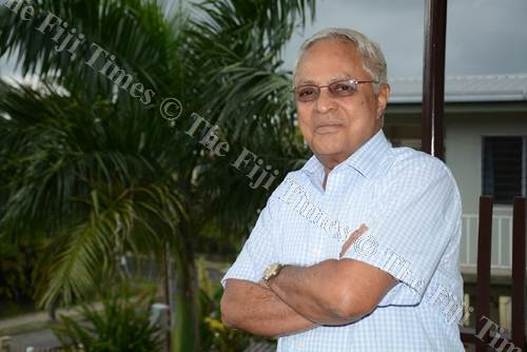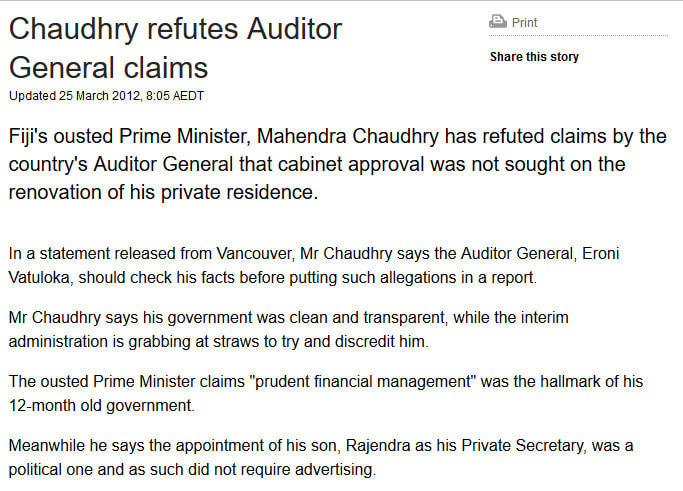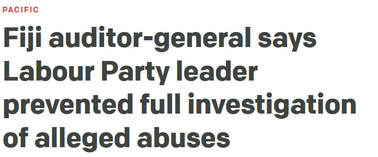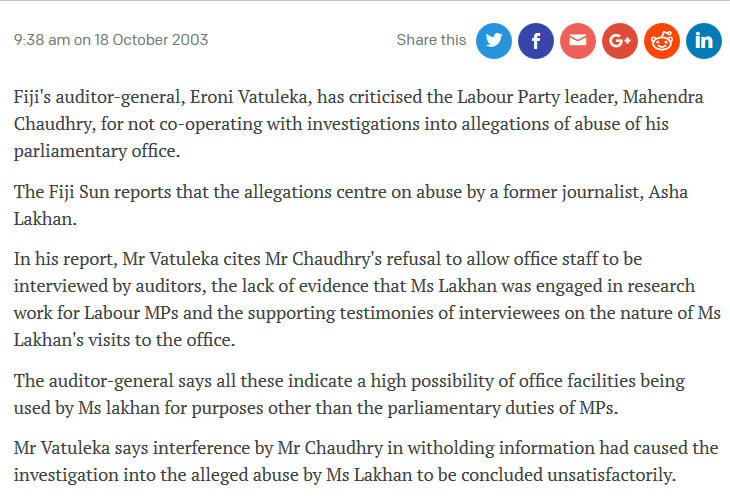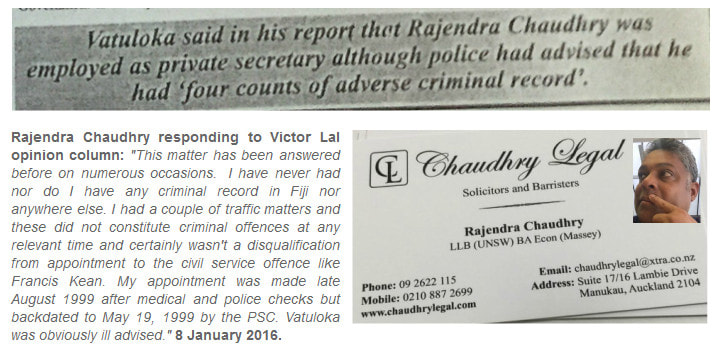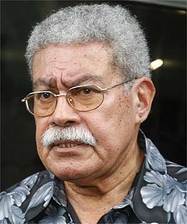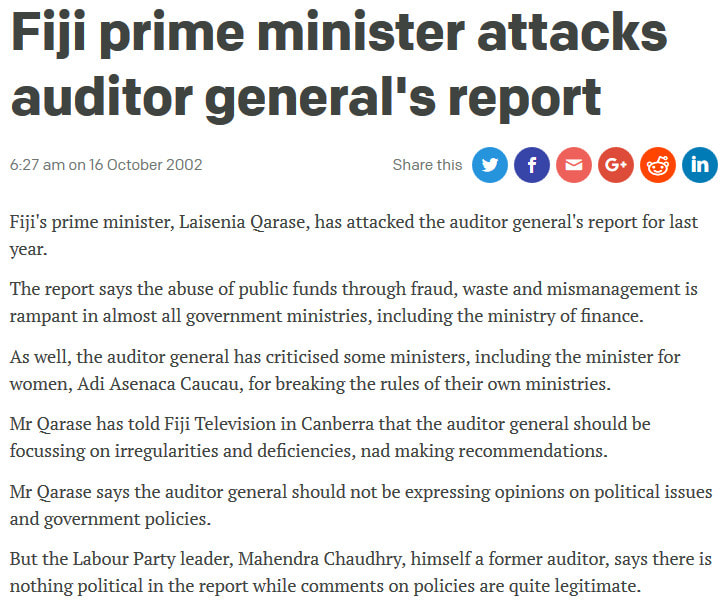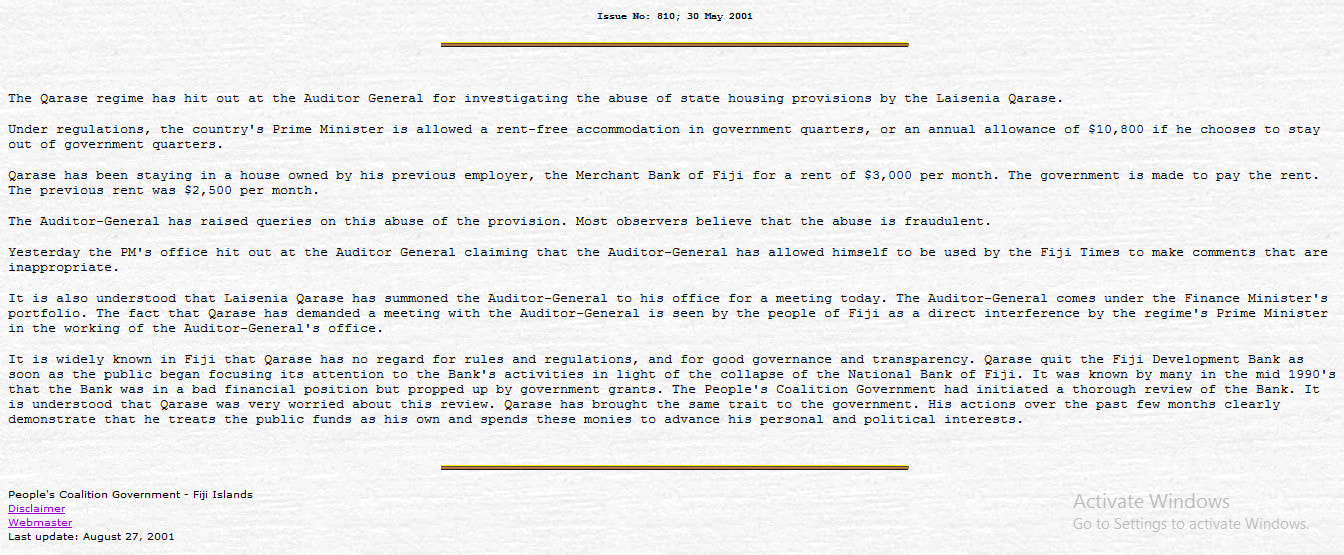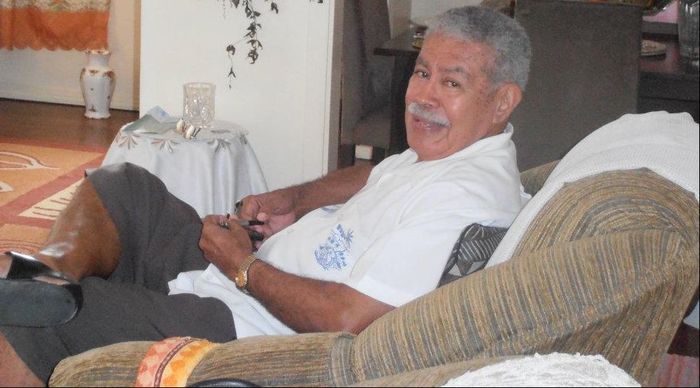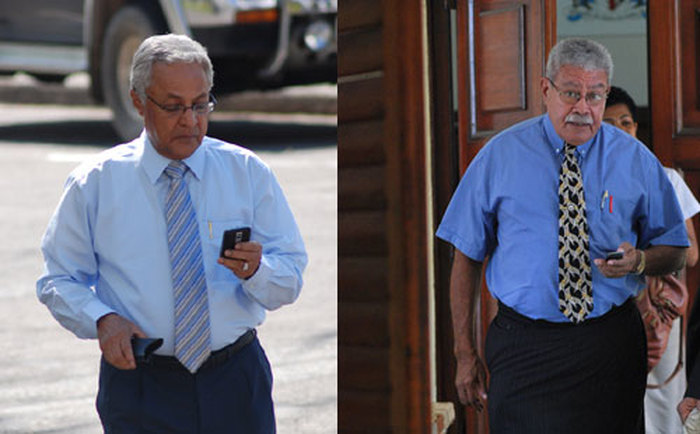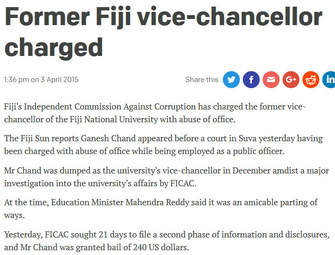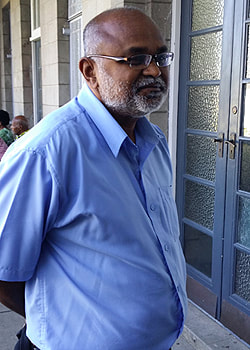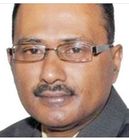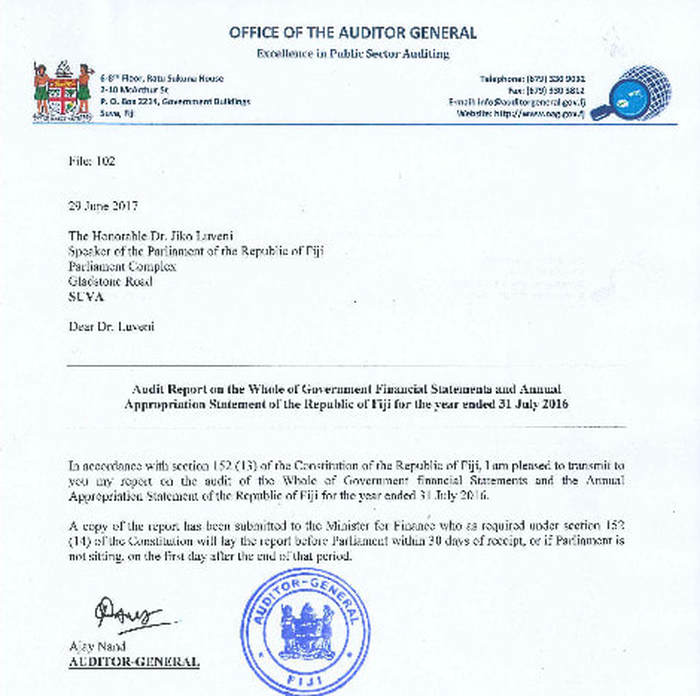No approval for home renovations, says Auditor's Report
DEPOSED prime minister Mahendra Chaudhry failed to get Cabinet approval to renovate his private residence nor was there proper documentation to assist auditors during the investigation.
In his report released yesterday, Auditor-General Eroni Vatuloka said $28,381.55 was spent on the home at Suva Point.
Of this, $14,225.51 was spent on wages, $13,289.67 on materials and $866.37 for the hiring of equipment.
During the investigation, the Government auditors noted four discrepancies:
(1) There was no specific Cabinet decision relating to the renovations at Mr Chaudhry's home. The report quoted a speech made in Parliament last June by former deputy prime minister Doctor Tupeni Baba who pointed out that Cabinet approval must be sought on the issue. As a result, the report said costs incurred by Finance, Public Works and the Prime Minister's Office were unauthorised;
(2) The director of buildings and Government architect had no authority to decide on the renovations;
(3) There were no regulations allowing the prime minister to stay at his private home although the parliamentary emoluments and benefits report did allow for the incumbent to live in a rent-free furnished residence with all the proper facilities; and
(4) Decisions and approvals relating to the renovations were not fully documented.
When The Fiji Times first published the story last September, the amount spent on Mr Chaudhry¹s home at that time was $24,503. There was also a request from the Public Works Department for an extra $87,320 to complete all renovations to the home.
Mr Chaudhry accused this newspaper of distorting facts and twisting the story, saying only that a maximum of $15,000 was spent on his home. This was supported by the then works minister, Shiu Sharan Sharma.
However, the deposed prime minister¹s son and former private secretary Rajendra Chaudhry contradicted him, saying that $24,503 was spent on renovations. The building director and Government architect then, Cama Tuiloma, said Mr Chaudhry had directed that repairs to his home be carried out. Neither Mr Chaudhry, who is in Canada, nor his son, residing in Australia, could be reached for comment last night.
The Auditor-General's report revealed Mr Chaudhry opted to stay at home because it would have been more expensive living in rented quarters which would have cost $5000 a month plus the cost of security measures.
Mr Chaudhry had offered the official prime minister's residence on Ratu Sukuna Road to the then vice-president, Ratu Josefa lloilo. Mr Vatuloka recommended that:
(1) The director of buildings and Government architect reveal who ordered him to direct the Public Works Department to carry out the renovations;
(2) The prime minister's office explain why the issue was not discussed and approved by Cabinet; and
(3) The Government review the housing eligibility of the prime minister and any decision made must be added to the emoluments report.
Son's appointment breaks service rules
FORMER prime minister Mahendra Chaudhry breached public service rules by appointing his son, Rajendra, as private secretary without advertising the position.
Also, the Auditor-General, Eroni Vatuloka, revealed that Rajendra Chaudhry did not undergo a medical examination nor did he produce a satisfactory police record before he took on the job. , Following his appointment on May 19, Rajendra's salary increased from $17 ,034 as administrative officer to $37,478 as private secretary.
"Before a letter of appointment is issued, a candidate selected for appointment must undergo a medical examination and should be passed physically and mentally fit by an authorised medical officer," Mr Vatuloka said.
"The candidate must also have a satisfactory police record. The private secretary did not undergo a medical examination nor did the police department clear him.
"The police vetting which was not received until August 8, 1999 indicated four counts of adverse criminal record but Mr Rajendra Chaudhry was appointed on May 19, 1999."
At the time of his appointment, Rajendra told the press he was the best person for the job, having worked alongside his father as administrative officer for the Fiji Labour Party.
Mr Vatuloka recommended that all public service appointments be made in accordance with PSC regulations.
Spending disturbs auditor
$49 million in unpresented cheques at end of 1999
AUDITOR-GENERAL Eroni Vatuloka has highlighted what he calls a disturbing trend amongst ministries or huge spending at year's end, indicating an attempt to spend all budgetary allocations.
In his 1999 report, Mr Vatuloka said as a result of this spending, the Government had $49 million worth of unpresented cheques at the end of last year.
"These high balances indicate that ministries and departments use the balance or funds available in their expenditure allocations towards the end of the year," the report said.
"Such procurements could only result in uneconomic expenditures and in most instances not within the requirements of the budget estimates approved by Parliament."
Mr Vatuloka recommended that the Ministry of Finance ensure strict measures are put in place to discourage ministries from huge commitments of public funds towards the end of the financial year.
At December 31, the departments with the biggest unpresented cheques were:
- Works and Energy (PWD), $15.9 million;
- Education, $10 million;
- Agriculture $5 million;
- Health $2 million;
- Fiji Military Forces $1.9 million;
- Police $1.7 million;
- Tourism $1.5 million;
- Regional Development $1.3 million;
- Government Supplies $1.2 million;
- Public Service Commission $605,068;
- ITC Services $563,768;
- Marine. $557,286;
- Lands $512,861;
- Fijian Affairs $510,326
- Foreign Affairs $463,765
- Labour $449,214
- Energy $448,840;
- Housing and Local Government $447,277;
- and Crown Law $423,334.
Ministries bust spending by $18.4m
GOVERNMENT ministries and departments exceeded authorised limits placed on the Revolving Fund Account by $18.4 million last year, according to auditor-general, Eroni Vatuloka. In his 1999 report, Mr Vatuloka said stringent control measures had to be put in place so nobody could operate over the authorised ceilings.
"It is obvious proper procedures were not followed," he said. A sum of $17,222 had been set aside for the operation of 22 revolving accounts to make, buy or produce goods and services and other Government activities.
"The Revolving Fund balance at 31 December 1999 was $34.8 million indicating that ministries and departments failed to operate within the approved financial ceiling and in defiance of the limits set by the Minister of Finance," Mr Vatuloka said.
The Finance Minister is empowered to set aside not more than $18 million for the operation of the Revolving Fund Account and sets limit on these account for individual commercial undertakings in various ministries and departments.
Revenue drop cause for concern
SOME government departments had alarming increases in arrears of revenue, which helped increase the total government figure to $148.5 million uncollected last year.
Auditor-general Eroni Vatuloka highlighted the problem in his 1999 annual report.
Of the total arrears or revenue last year. the Inland Revenue Department had $65.9 million; the VAT Unit $22 million; UNIFIL $17 million; and Public Works and Infrastructure $11 million.
Lands Crown Rent had not collected $8 million; Judicial $5 million while Meteorological Services, Agriculture, Loans, and Government Supplies all had arrears or revenue or around $3 million.
"While some ministries and departments have taken positive recovery actions to collect dues to the Government, the arrears of revenue position for other entities have deteriorated to an alarming level warranting urgent remedial action," he said.
Mr Vatuloka highlighted revenue arrears for the Customs and Excise Department, which increased by an alarming 753.3 per cent last year. He said the Treasury Department's figure increased by 345.76 per cent, with the Meteorological Department's up by 171.6 per cent.
Additionally, Mr Vatuloka said ministries that overspent their budgets every year were Agriculture, Fisheries and Forests, Communication, Works and Transport, Health, FMF and the Police. He said this reflected poor budgetary preparation by these ministries and departments.
Trust funds overdrawn
TWELVE trust fund accounts within the Government were overdrawn by $10.5 million at the end of last year, says auditor-general Eroni Vatuloka.
Mr Vatuloka said in the annual report for 1999 that this was despite a circular warning that trust fund accounts should not, at any time, be overdrawn.
He said the chief accounting officers responsible for the overdrawn trust accounts should be asked to explain the reasons for allowing such action to take place.
Mr Vatuloka said the ministry should ensure that accounting officers comply with regulations.
Of the total amount overdrawn, $10.1 million or 96 percent, was for customs, and $214,465 was for finance management reform. The next largest amount was for the Fiji Military Forces' overseas remittances, which were overdrawn by $85,587.
The AG's report said that on numerous occasions, official government vehicles housed at various officials' residences without the proper approval of the Permanent Secretary for Finance and that there were many instances of unofficial vehicle runs.

The AG said that the purchase of air travel tickets for two of former Minister for Fijian Affairs, Adi Kuini Speed's children who accompanied her abroad for medical treatment was "inappropriate, illegal and should not have been allowed" and that the cost of airfares should have been reimbursed to the Ministry of Fijian Affairs.
The Ministry said that Adi Kuini's two children accompanied her because she was incapable of travelling on her own due to her medical condition. Adi Kuini said from her home last night that the expenditure of purchasing two airline tickets for her two children to accompany her on medical trip to Australia was justified by the "Fijian Affairs Secretariat.
"I was told that I was entitled to have two people travel with her when I went abroad for medical treatment. All my children came with me but only two was paid for by the Ministry," she said.
She added that it was unfortunate that such allegations were leveled at her Government.
"It¹s very petty. One only has to compare the trip that I took which was for medical treatment of an elected member of Government and Deputy Prime Minister, to the $28,000 trip taken by the interim Prime Minister and his cronies who are unelected and using Government funds to travel to New York and justify treason to the rest of the world. It does nothing for the taukei," she said.
Fijileaks: The late Adi Kuini was reminding us of Laisenia Qarase's trip to the UN as Interim Prime Minister after the Speight coup where he justified the violence and vandalism against the Indo-Fijians, citing i-taukei rights. When it came to his own government, Qarase attacked the A-G's Reports
"The Qarase regime has hit out at the Auditor General for investigating the abuse of state housing provisions by Laisenia Qarase. Under regulations, the country's Prime Minister is allowed a rent-free accommodation in government quarters, or an annual allowance of $10,800 if he chooses to stay out of government quarters. Qarase has been staying in a house owned by his previous employer, the Merchant Bank of Fiji for a rent of $3,000 per month. The government is made to pay the rent. The previous rent was $2,500 per month. The Auditor-General has raised queries on this abuse of the provision. Most observers believe that the abuse is fraudulent...His actions over the past few months clearly demonstrate that he treats the public funds as his own and spends these monies to advance his personal and political interests."
Issue No: 810; 30 May 2001 - People's Coalition Government
Under regulations, the country's Prime Minister is allowed a rent-free accommodation in government quarters, or an annual allowance of $10,800 if he chooses to stay out of government quarters.
Qarase has been staying in a house owned by his previous employer, the Merchant Bank of Fiji for a rent of $3,000 per month. The government is made to pay the rent. The previous rent was $2,500 per month.
The Auditor-General has raised queries on this abuse of the provision. Most observers believe that the abuse is fraudulent.
Yesterday the PM's office hit out at the Auditor General claiming that the Auditor-General has allowed himself to be used by the Fiji Times to make comments that are inappropriate.
It is also understood that Laisenia Qarase has summoned the Auditor-General to his office for a meeting today. The Auditor-General comes under the Finance Minister's portfolio. The fact that Qarase has demanded a meeting with the Auditor-General is seen by the people of Fiji as a direct interference by the regime's Prime Minister in the working of the Auditor-General's office.
It is widely known in Fiji that Qarase has no regard for rules and regulations, and for good governance and transparency. Qarase quit the Fiji Development Bank as soon as the public began focusing its attention to the Bank's activities in light of the collapse of the National Bank of Fiji.
It was known by many in the mid 1990's that the Bank was in a bad financial position but propped up by government grants.
The People's Coalition Government had initiated a thorough review of the Bank. It is understood that Qarase was very worried about this review. Qarase has brought the same trait to the government.
His actions over the past few months clearly demonstrate that he treats the public funds as his own and spends these monies to advance his personal and political interests.
People's Coalition Government - Fiji Islands
August 27, 2001
The report highlights what the FLP has been saying since the first day Mr. Qarase took over government: that Mr Qarase and his team have no respect for established rules, regulations and procedures for spending public money and accounting for it.
The report highlights abuses and scams in almost every department of the government. Starting from the very top – in the PM’s office – abuses and scams are found in the police department, government’s trust fund accounts, Social Welfare Ministry, Multi-ethnic Affairs, Regional Development, Finance Ministry, Health Ministry, Immigration Department, Education Ministry… and the list goes on.
Of great concern is the fact that serious questions of abuse of funds have been labelled at the Prime Minister Mr. Qarase himself. That over $54,000 of small grants funds disbursed by Mr. Qarase do not have proper records shows the degree of negligence prevalent in the highest elected office in the country. But the public can expect no better if public funds are willy-nilly used to buy political support through donations made from taxpayers’ funds.
The Prime Minister’s office, as well as the offices of the Ministers of Social Welfare, Multi-ethnic Affairs, and Regional Development are well-known for distributing public funds to purchase political support.
This is outrageous. It has set a very dangerous precedent in Fiji. Buying political support is anti-democratic and a typical example of bad governance which has plagued numerous third world nations. It also exposes the lack of courage of the senior civil servants in advising the Ministers’ against this practice. It also shows that civil servants in certain sections of the government have been totally politicized. The peak of this was seen in the Agriculture Department scam.
Then, there are cases involving a private company Vinod Patel & Co Ltd. It is a well-known fact that Mr. Qarase is very close to the principals of this company. That this company was given a tender for a sum much higher than the cheapest bid, raises questions on whether the influence of Mr. Qarase was used by this company to secure the tender. In addition, this company has been cited for breach of immigration laws in employing an accountant from India. It is well known that some local companies have been hiring accountants from India while our own accountants are going without jobs. Why would a government allow this state of affairs to continue is open to speculation. Some years ago, the same company was involved in a customs scam.
The abuse of public funds creates fundamental problems in Fiji.
First, it takes away much needed money from more useful and pressing areas of need. The revelation of the millions of dollars squandered in such abuses come only hours after the Prime Minister made a passionate speech about poverty eradication. Over the years, well over $100m of funds have been squandered by the Qarase regime. Interestingly, the Welfare minister estimates that only with $96m would Fiji be able to get rid of the problem of poverty once and for all. If that were so, the funds abused by the Qarase government would have been sufficient to eliminate poverty in the country!
Second, the cancer of abuse has seeped right through the government machinery. When junior offices see Ministers and senior civil servants abusing public funds, and when they see them continuing to prosper, junior offices also start abusing public funds. Corruption and nepotism thrive in such an environment.
It is no exaggeration that under the SDL and Qarase leadership, the fundamentals of government and governance have been destroyed. Institutions which the previous governments built over decades, and institutions which proved to be most useful in ensuring good governance, have been seriously undermined and threatened by the callous and mercenary attitude of the Prime Minister.
The abuses undermine the confidence which the people have in the institution of government. This confidence is vital for a nation to prosper. These institutions will take a long time to be reconstructed.
Third, the abuses undermine investor and consumer confidence in the country. When massive cases of abuse and corruption are noticed by potential investors, they lose confidence in the government’s ability to provide a level playing field in the country. Financial abuse and corruption is a cost to business. This further diminishes investor confidence in the country.
Fourth, the economy suffers from the abuse. When financial abuse abounds, much needed growth areas are neglected by the government. This, coupled with the excessive costs on the taxpayers to maintain a non-accountable government, and the declining in investor confidence, places a huge hurdle for economic growth.
Fifth, the continuing abuse under the Qarase regime shows that its own ministers, the Finance Minister in particular, have miserably failed to live up to the expectations of the public.
It is the responsibility of the Finance Ministry to ensure that financial abuse is nipped in the bud. Yet, during the past 3 years, Fiji has seen rising incidence of financial abuse. One can conclude that either the Minister is a party to the abuses and the scams, or that he is plainly incapable of doing his job satisfactorily.
It is indeed sad that the good work done by the Office of the Auditor-General tends to go to waste because the Minister for Finance has failed to ensure that established rules, regulations and procedures are followed strictly by officials and Ministers.
Fiji needs to rid itself of financial abuse, corruption, nepotism and bad governance if it wants to prosper. Unfortunately, the continuing cases of abuse show that this government is least concerned with the abuse of public funds. The people no longer have any confidence in the Qarase regime to manage public money. They no longer have any trust in this government’s ability to handle public money. This message comes out loud and clear from the report of the Auditor General.
Ganesh Chand
Finance Spokesperson – FLP
22 October 2003
